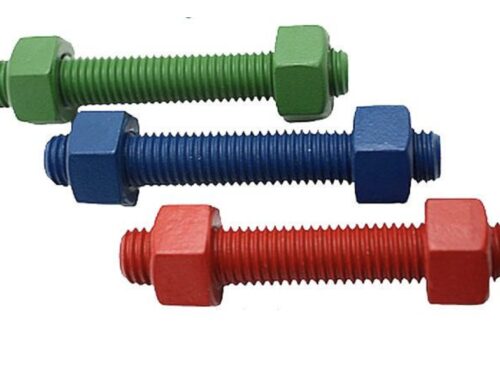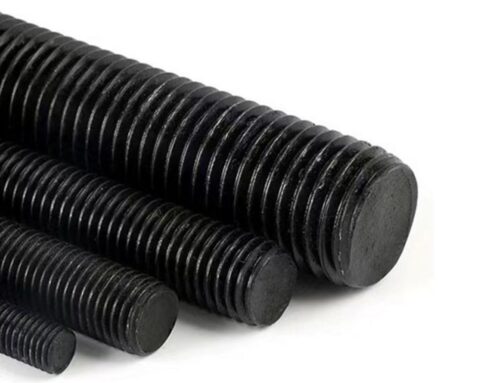ASTM A194 Gr 7 vs A194 Gr 4 Heavy Hex Nuts
Both ASTM A194 Grade 7 and Grade 4 Hex nuts are used assembled with ASTM A320 L7 or ASTM A193 B16 stud bolts.
But in actual practice,A194 grade 4 is not reguarly available in the market.Because Grade 4 is expected to be withdrawn within approximately 2 years. Grade 7 is an acceptable substitute for Grade 4 according ASTM A194 2016 version.
In the lastest ASTM A194 Standard.Grade 4 has been already withdrawn.
People might have the questions,what if they still want to use A194 grade 4 nuts? Can Grade 4 nuts be replaced by Grade 7 nuts?
The answer is quite clear..Yes.you can replace grade 4 by grade 7 Nuts.
The ASTM A194 in paragraph 7.2 say “Grade 7 may be substituted for Grade 4. When such substitution is made, the nuts shall be marked as Grade 7″
S3. Low-Temperature Requirements for Grade 4, Grade 7 or Grade 7M Nuts
S3.1 When low-temperature requirements are specified for Grade 4 or Grade 7 nuts, the Charpy test procedures and requirements as defined in Specification A320/A320M for Grade L7 shall apply.
What is the exact difference between ASTM A194 Gr 7 and A194 Gr 4 Hex Nuts ?
You may refer to below chart for reference.
Difference in Chemical Requirements
| Grade | C % | Mn % | Cr % | Mo % |
| 4 | .40-.50 | .70-.90 | … | .20-.30 |
| 7 | .37-.49 | .65-1.10 | .75-1.20 | .15-.25 |
| Property | ASTM A194 Grade 7 | ASTM A194 Grade 4 |
|---|---|---|
| Material Composition | ASTM A194 Grade 7 and 7L nuts are made from chromium molybdenum alloy steel, including AISI grades 4140, 4142, 4145, 4140H, 4142H, and 4145H. These materials offer strong mechanical properties and durability, making them ideal for high-stress industrial uses. | ASTM A194 Grade 4 nuts are made from carbon molybdenum steel and have a chemical composition that includes
0.40-0.50% Carbon, 0.70-0.90% Manganese, 0.20-0.30% Molybdenum, with maximum limits of 0.035% Phosphorus, 0.040% Sulfur, and 0.15-0.35% Silicon. |
| Proof load |
|
|
| Mechanical Strength | Higher tensile strength, suitable for extreme conditions. | Moderate tensile strength, used in standard applications. |
| Hardness | f 248-327 BHN and a Rockwell hardness of 24-35 HRC. | f 248-327 BHN and a Rockwell hardness of 24-35 HRC. |
| Applications | High-temperature and high-pressure environments, such as petrochemical and power plants. | High-temperature and high-pressure environments, such as petrochemical and power plants. |
| Heat Treatment | quenching and tempering at a minimum of 1050°F (565°C) s. | quenching and tempering at a minimum of 1050°F (565°C) |
| Marking | Grade 7 | Grade 4 |

